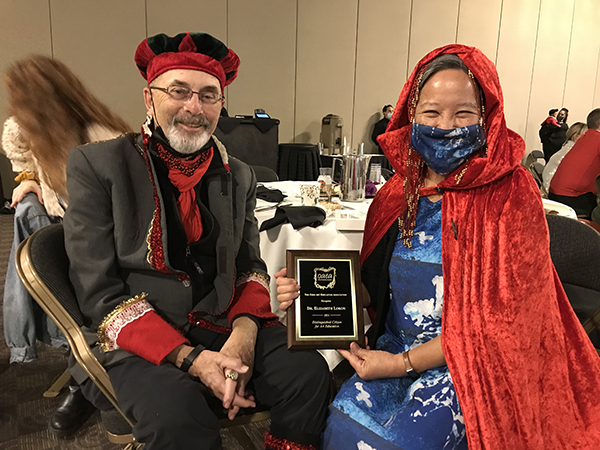Staying Connected Virtually
“The scientific evidence is convincing. Strong social ties are good for one’s health.”
(Lubben, 2017)
Loneliness, a subjective feeling of being isolated caused by having inadequate social contact with others has been associated with detrimental effect on health and mortality. Almost half of adults aged 60 and older in the United States report feeling lonely and almost one-third of millennials report feeling lonely. The current pandemic exacerbates the situation, yet there are still opportunities to connect with others. Here are five different ways to stay virtually connected with older adults or as older adults.
1. Call Someone
One of the simplest things to do is to pick up the phone and call someone. You can sign up to make or receive calls by joining Dorot USA, L.A. Works, or Sweet Readers programs. If you’re not sure what to talk about, use great questions posted on StoryCorps and TimeSlips websites. You can even share a meal together over the phone or via video chat with someone from a different generation by signing up at Meals Together.
2. Write Letters or Emails

If you prefer to write more than talk, pick up a pen and write postcards and letters. Many people enjoy receiving real, personalized mail in the mailbox. Dream Catcher and Sharing Smiles have a pen pal program that connects younger and older people. You may also consider writing to isolated older adults in care communities. TimeSlips publishes addresses of care communities all around the world that are accepting paper letters. You can even write to older adults in Italy and New Zealand!
3. Do More Art
In times of isolation, art is even more important to lift up our spirits. The Creative Center in New York City sends a weekly newsletter with links to free art lessons for anyone. They have archived over 20 quick lessons to get started right away. On the other side of the coast, Ruth’s Table in San Francisco has free Zoom art classes for older adults.
If you are caring for someone living with dementia, our own website has the Creative Caregiving Guide, a series of free videos, each about 15 minutes long, modeling techniques for using the arts with people who live dementia. These 19 lessons are taught by internationally renowned master teaching-artists. You can learn how to create poetry, art, and imaginative stories together, then connect with the person you care for via computer or phone to apply techniques learned.


The Alzheimer’s Foundation of America also has a variety of arts and other virtual activities ranging from fitness, art, and travel sessions to educational sessions on topics like tele-med and insomnia. These programs are also geared toward people living with dementia.
There are also virtual tours and visits of art museums! If you can share your screen with someone who is isolated, and show all the artwork available at these museums’ websites. You could enjoy them together, talk about what you see in the artwork, and share some art history facts from MoMA or Georgia O’Keefe Museum. You have the opportunity to watch special video work from the New Museum; listen to weekly art history talks at the Whitney; or take a 360-degree tour of the Frick galleries. There are so many possibilities! You can visit Rome, Paris, Amsterdam, and Beijing to tour major museums from the comfort of home. Here is a list of 37 best museum virtual tours.
4. Learn Something New
Learning something new is always good for our brain health. COVIA’s Well Connected has over 80 free virtual programs for people aged 60 and over. The programs are conducted by phone or via a computer with about 12 other people. They cover a variety of areas, from the arts, travel, fun & games, book clubs, health & wellness, technology, and more. The unique aspect of Well-Connected is that you can join by calling a toll-free number if a computer is not available. Likewise, Senior Planet and University without Walls also have a variety of free virtual classes you can join.


5. Volunteer
Did you know that volunteering is good for your health and well-being? AARP has a list of virtual volunteering opportunities; Covia’s Well-Connected invites people to lead a virtual group in their own areas of interest; and Volunteer Match has “Virtual Opportunities.” You can also mentor children virtually by joining Senior Corps or Mentor programs.
Staying home does not have to mean feeling lonely and isolated. One good thing about the pandemic has been the increase in virtual engagement opportunities. There is something out there for every one of us to stay connected and flourish.


